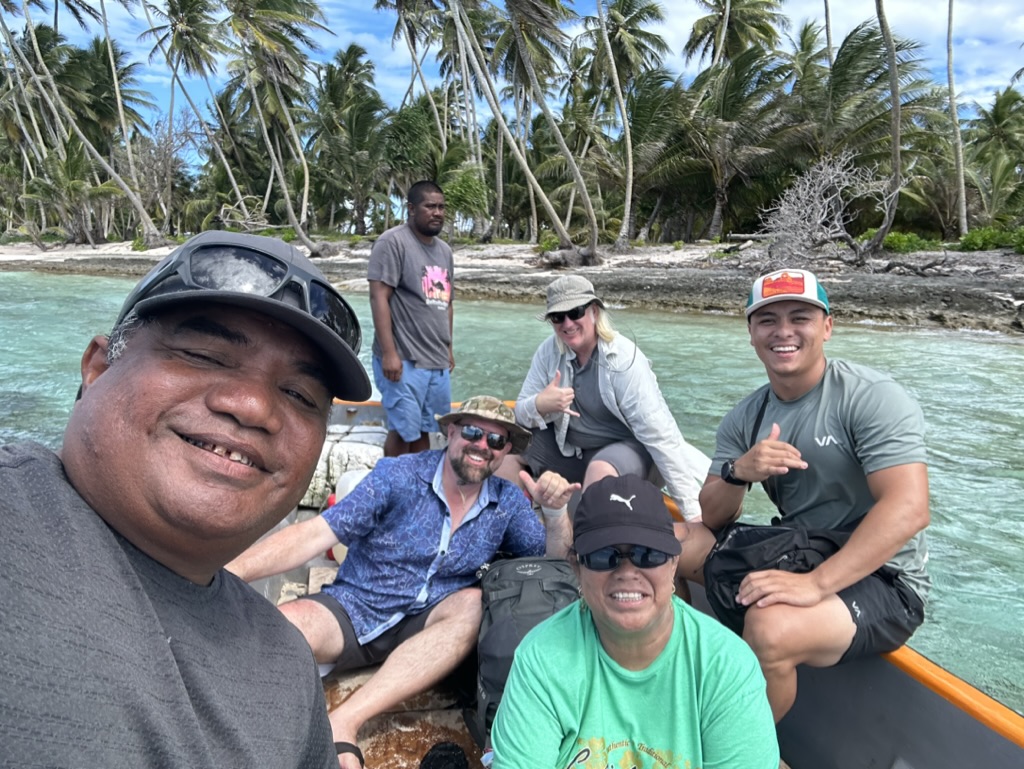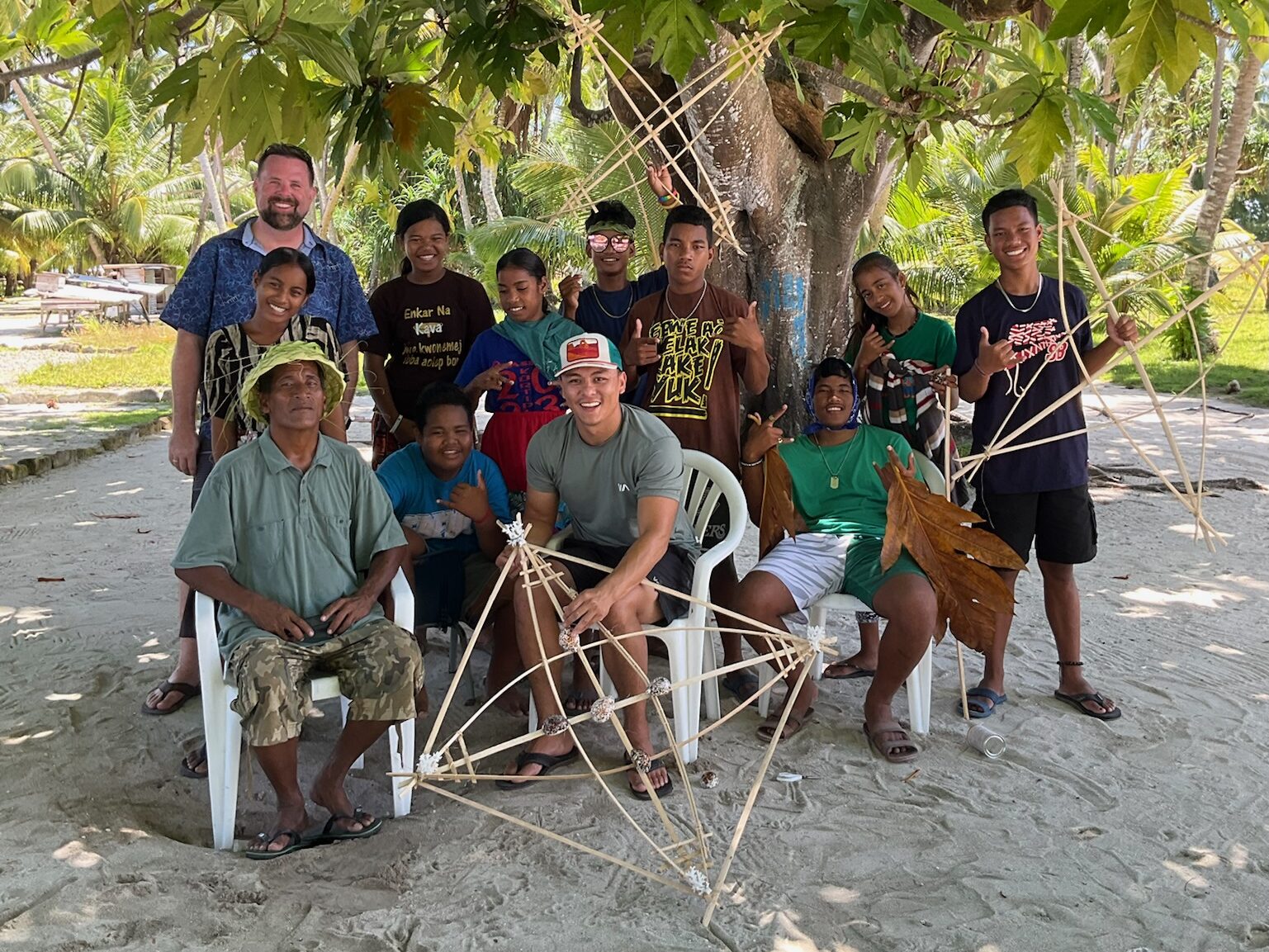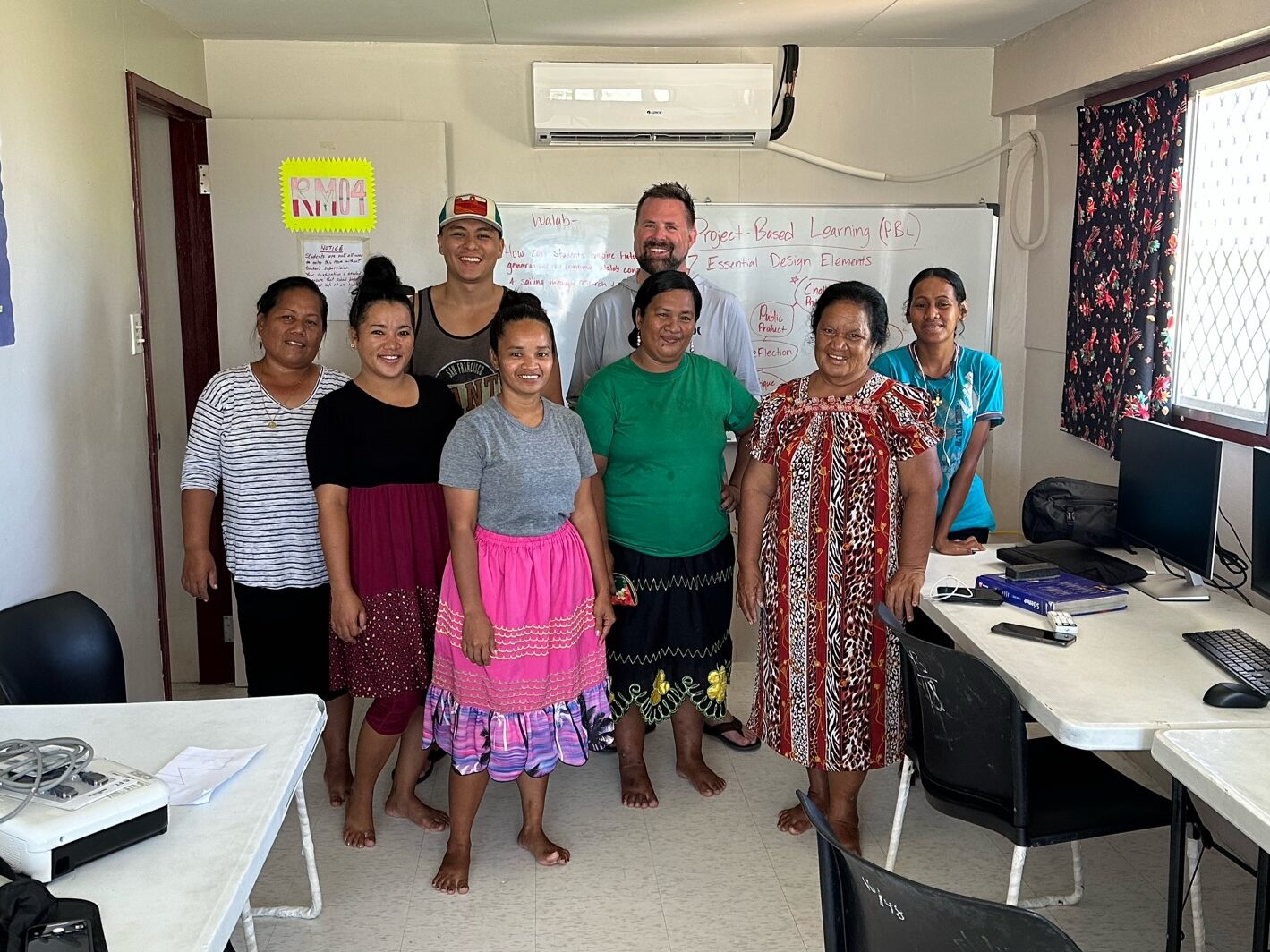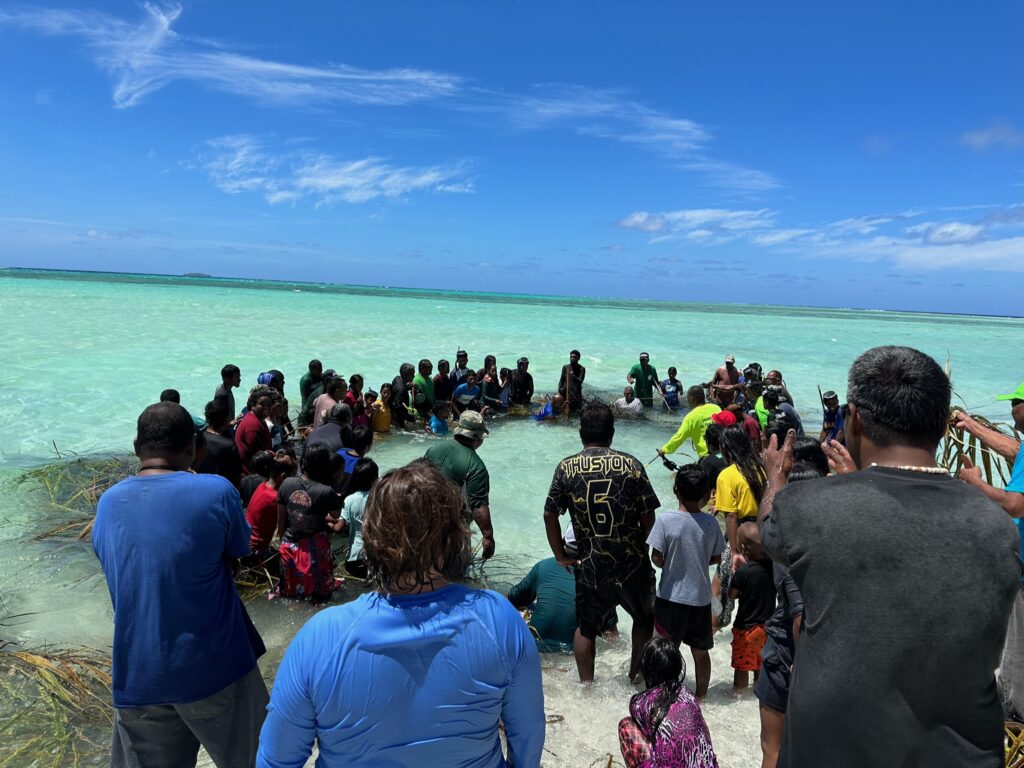By Chloe Craig
This summer, Educators of America had the privilege of being invited to the Kwajalein Atoll to observe the 2023 Spartan Camp, an annual summer camp for local high schoolers. The first Spartan Camp took place in 2016, focusing on place-based learning alongside the cultural traditions of the atoll and core STEM concepts. This year, roughly 100 students gathered on Gugeegue, Enubirr, and Mejato to take part in Spartan Camp.

We were invited to Spartan Camp by Jelton Anjain, the Commissioner of Education on the Kwajalein Atoll. Jelton was born and raised on the Kwajalein Atoll, and his passion for the culture of the island and the education of its residents was clear the second we met him. From the boat rides between campsites that could take anywhere from three to five hours, Jelton would endure the trip multiple times to make sure that each campsite was well stocked for the activities for the week, including necessities like food and fuel. Jelton made himself available for assistance as he spent time with students in both classroom and experiential learning environments. He also lived like an equal partner with the teachers, camping alongside them each day and night. Jelton’s generous, hands-on nature was extended to us as well; throughout our time at the camp, Jelton offered us transportation, meals, and even lodging when needed. We could tell that Jelton’s first priority was facilitating the lasting educational and cultural experience for everyone at Spartan Camp, and we cannot thank him enough for all of his hard work and dedication to making sure Spartan Camp ran like clockwork.

All of the teachers involved in Spartan Camp this year are from Ebeye, the main and most populous island of the Kwajalein Atoll. Each teacher offered a unique and enriching course for the students: net, jewelry, and mat making, and math are just a few of the classes led by the teachers this year. Alta, one of these teachers, stood out to us as an incredible example of how Spartan Camp exposes the students to enriching cultural and educational experiences that they would not be able to find anywhere else. Alta, also born on the Kwajalein Atoll, speaks a very old form of Marshallese that is difficult to translate today, and he holds an incredible wealth of knowledge of the traditions both in language and practice. In Alta’s class, campers learned about Wappepe, the traditional Marshallese charts used to depict wave patterns and teach the foundational skills to navigate the atoll and beyond. These Wappepe were created with materials collected by Alta and the students from the island, just like their ancestors would have hundreds of years ago: with the wood of the pandas tree, cowrie shells and dead coral, which contributed to the authentic Place-Based Learning. Alta’s calm, focused energy and skillful teaching complemented the tradition and culture of the atoll that he shared, and we are incredibly grateful that he continues to share this vital knowledge with the community through Spartan Camp.

During our time at Spartan Camp, we were also honored to offer a Project-Based Learning (PBL) workshop to the teachers on Enubirr to further enrich their instruction. Educators of America’s team members, Mike and Justin, were able to provide foundational knowledge of the PBL pedagogy while also gaining a deeper understanding of the content standards on Kwajelein Atoll. This collaboration sparked potential ideas from the teachers on how PBL could be incorporated in their classrooms so their students can gain more 21st-Century Skills.
We are honored to have been invited and welcomed into the communities on the Kwajalein Atoll. An unforgettable experience from our time at Spartan Camp was the annual fishing event on the island of Mejato. Hundreds of feet of palm tree branches were woven together over two weeks to create a rope, which was brought out to the lagoon to section off an area roughly the size of a football field. This made an enormous wall that trapped fish inside as the community came together to drag the rope from the water to shore, with spearfishermen maintaining the perimeter in case of any shark sightings. All of the fish brought ashore were then prepared for an enormous feast and celebration that took place that evening to honor the completion of Spartan Camp. The next morning, the community members came together one final time to give us a warm goodbye with a gentle handshake and a friendly smile. Moments like these are invaluable to the community and its enduring culture, and we cherish the time we have spent in this community. The connections we have made and the resources established through this experience are precious to us, and we look forward to continuing to build on the incredible foundation that this trip has created; especially continuing our work with our friends on the Kwajalein Atoll.

